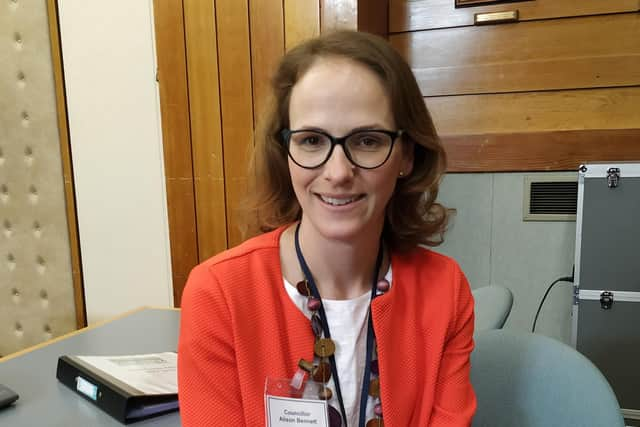Social media trolling of councillors highlighted


Alison Bennett (Lib Dem, Hurstpierpoint & Downs) made a bid for the Arundel & South Downs seat in 2019, losing out to Andrew Griffith.
During a meeting of the district council’s standards committee, members held a discussion about the online abuse received by councillors and the training they needed to deal with it.
Advertisement
Hide AdAdvertisement
Hide AdDescribing her own experience on the national playing field, Ms Bennett said: “I wasn’t getting death threats but I was getting invitations to commit suicide.


“I had people helping me who dealt with that and blocked people but it definitely goes on and definitely sadly seems to be par for the course these days.”
Chairman Peter Bradbury agreed. He said: “Sadly if you decide to take part in public life, abuse on social media just comes with the job now.”
The committee was discussing the Local Government Association’s draft Model Code of Conduct – a template by which all councillors are expected to conduct themselves – which included sections on bullying, harassment and civility.
Advertisement
Hide AdAdvertisement
Hide AdDavid Horne, who serves as an independent person on the committee, felt the advice and protection offered to councillors who fell victim to social media abuse was ‘mealy-mouthed’ and should be stronger.
Dr Horne said he had seen some ‘frankly horrendous’ examples of people using social media to target councillors.
He added: “I think there is an army of professional provokers out there who are targeting not just councillors but people in public life in the hope of getting an inappropriate response which can then be used to actually cascade a whole series of events.
“The response to that I think is ensuring that elected councillors, including new councillors, are fully trained in the use of social media and the good practices that follow.”
Advertisement
Hide AdAdvertisement
Hide AdWhen asked about her experiences, Ms Bennett stressed that, during her time as a councillor, she had not received anything as unpleasant as the abuse she endured during her battle to become an MP.
But she agreed that the fear of abuse was preventing some people – particularly women and other under-represented groups – from taking the plunge into public office.
Her advice to other councillors – especially those new to the political scene – was to be polite and professional online and always treat others as you would wish to be treated.
She added: “When people are being abusive the best thing to do is not to engage with them: you are not obliged to respond if they are being aggressive.
“If necessary feel free to block them.
Advertisement
Hide AdAdvertisement
Hide Ad“Finally make sure you have a team around you who can support you and can deal with the trolls without you having to look at it.”
Data from the Fawcett Society, a charity which campaigns for gender equality and women’s rights, showed that in a survey of more than 2,300 councillors, 46 per cent of the women saw harassment or abuse as a barrier, compared to 35 per cent of the men.
The report said: “A number of women pointed to constant abuse on social media as a key factor in preventing women from running for selection or election – especially when threats were directed at family members.”
Karen Dunn , Local Democracy Reporting Service